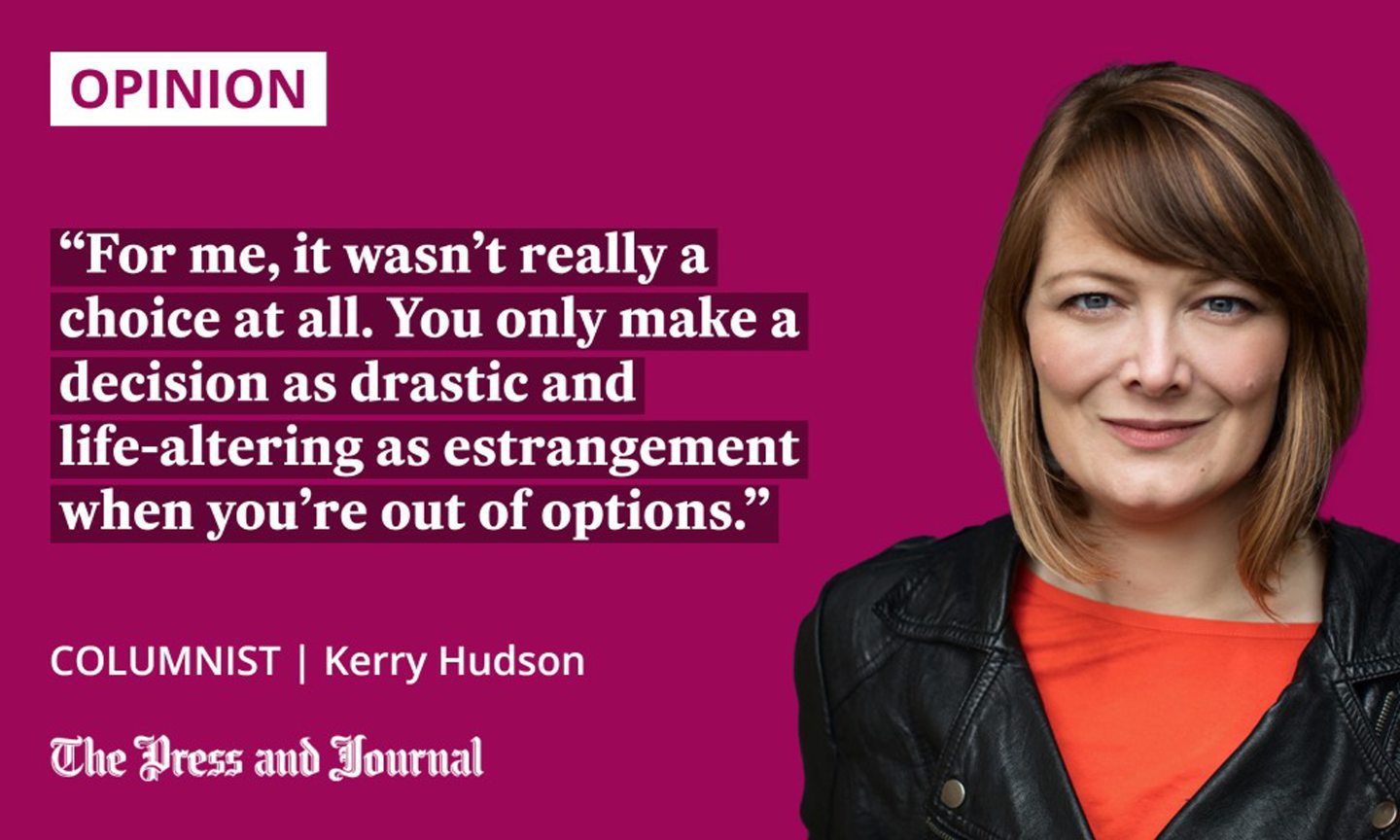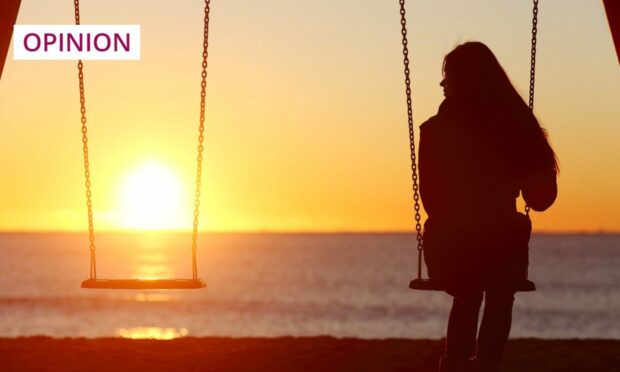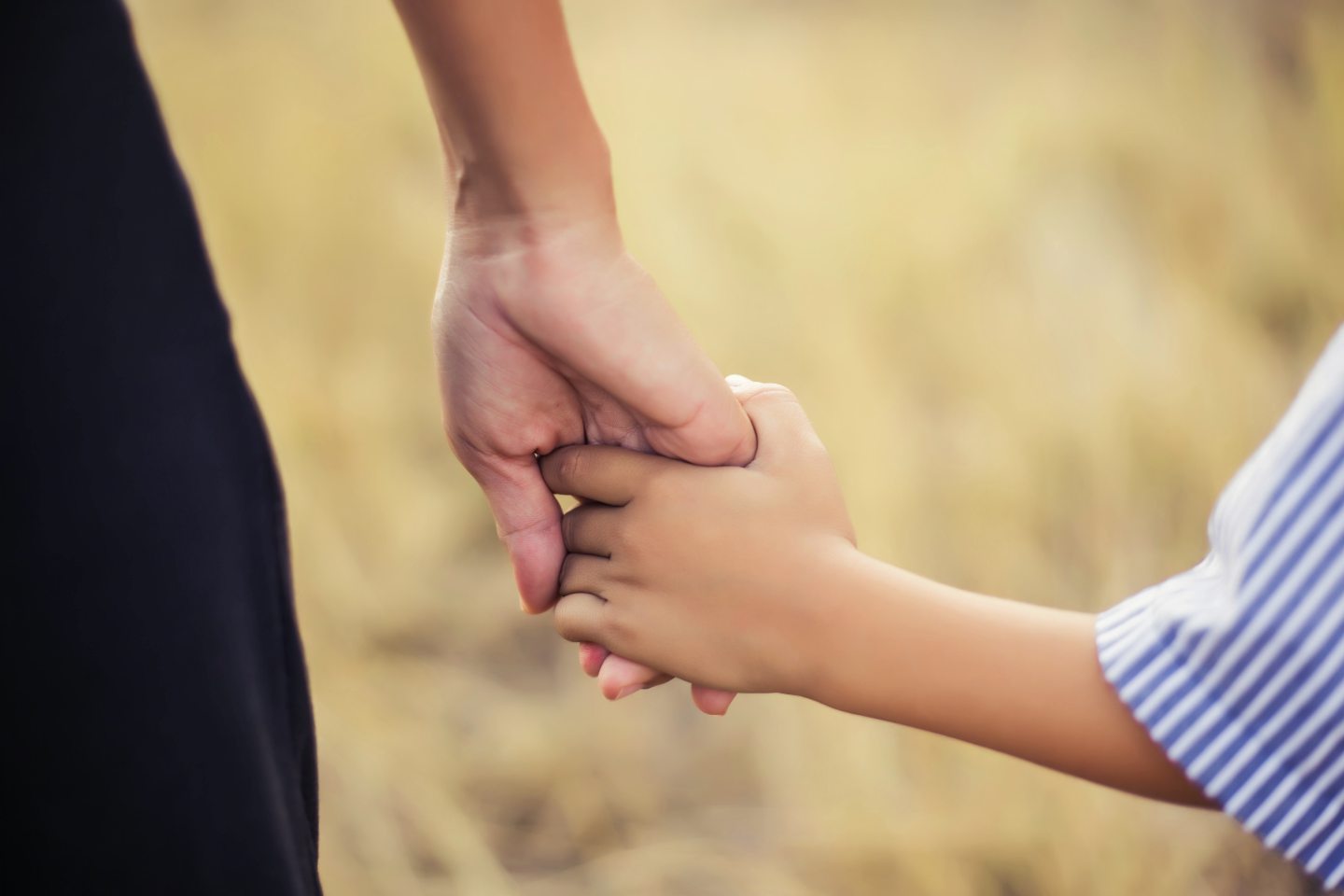You’re far from alone in having complicated family relationships, even though not everyone has to take this ultimate step, writes Kerry Hudson.
Welcome to Mother’s Day morning.
My husband, my little boy and I are crowded around our more-dog-fur-than-fabric sofa as I open my card: a beautifully free scribble from my little boy. Alongside this, there’s a box of Milk Tray (because this lady loves them); plates piled with pancakes, honey and butter; a small, beautiful box containing, for some unknown reason, a ring shaped like a pair of boobs.
Johny, our enormous rescue dog, is sniffing at the chocolates. My toddler inhaled his breakfast and is now asking for mine, in the voice of a panto dame (“Some of mummy’s pancakes?”) and nodding his head vigorously. Dora, our black cat, does furniture parkour: a supercharged shadow.
It’s chaotic. It’s family. To me, it’s perfect.
Mother’s Day hasn’t always been like this for me. I used to dread the day. The build-up of adverts with smiling, soft-focus mums holding carnations, card shop window displays and marketing emails explaining how car insurance could be the best Mother’s Day gift.

For many, many years it was a painful reminder that I wasn’t normal; that my life wasn’t normal. That, somehow, I had failed in the one relationship that’s meant to be enduring.
This is because, like many people – perhaps many more than you might imagine – I’m estranged from my mother.
I’ve been estranged from my mum since my twenties. Here, I would normally justify the reasons for my choice because, in my experience, everyone’s first instinct when they hear this is not: “What happened?” but: “How could you?” This is particularly true of estranging yourself from your mother; the question doesn’t persist in the same way if it is a friend, or partner, or even your father.
I won’t justify, but I will tell you that, for me, it wasn’t really a choice at all. You only make a decision as drastic and life-altering as estrangement when you’re out of options. It’s not selfishness or stubbornness or pride. In my experience, it’s because you’re fighting for your life.
I do know that this can be hard for people who never knew their mothers or have lost their mothers to understand. Still, if I hear one more person say – before hearing any of the decades-long history that led me to this point – “But blood is thicker than water”, my head might pop off my shoulders in rage. Not least because it was so taboo that I didn’t feel I could turn to anyone.
For me, it felt like being bereaved of a parent without being able to grieve. Though, of course, I did grieve, and for many, many years.
I found nurturing, guidance, kindness and love of different kinds
Now, my life is very different. I love motherhood in a way I could never have imagined. This morning, I looked at my son’s gappy smile, turned to my husband and said: “Honestly, my happiness exists in the gap of his front teeth.” He replied: “It’s big enough.”
I don’t have a mother. But I have found nurturing, guidance, kindness and love of different kinds. In my wonderful, wise friends; my loving husband; my mother-in-law, who swears like a sailor and is sharp as a whip.
In the many women I work alongside, who inspire and mentor me. Even, don’t laugh at me, my pets, who are the first to come and lay beside me unquestioningly when I’m upset.
In turn, I’ve learned from them all, and tried to be a better mother, a better friend, a better partner, a better human.
If you found this Mother’s Day difficult, know there were and are many feeling the same. The UK’s first charity for those estranged from their family, Stand Alone, estimates that five million people have estranged themselves from their family at some point in their lives.
I know that I found that sheer scale enormously comforting. It wasn’t that I wasn’t normal: I was in the company of millions of other people with equally complicated and individual relationships.
You’re not alone
If you’re new to this, or not new but struggling, talk about it to people you trust, if you can. You’ll find you’re far from alone in having complicated, difficult relationships, even though not everyone has to take this ultimate step. In time, you’ll come to recognise it as an act of resilience and self-preservation.
If you need more support, Stand Alone offers a number of excellent support services. They also publish research which helps us understand estrangement both individually and as a society: why it happens, how often, and what the outcomes can be – both good and difficult.
I’d also recommend the Facebook group, “Necessary Family Estrangement”, founded by beauty journalist, Sali Hughes. It’s a private, closed group, and a place to speak with other people going through the same.
Love and nurturing comes in more forms than the traditional mother and child roles
This Mother’s Day morning, amidst the chaos and tiny, sticky handprints, I was thinking of the people with strained relationships with their mothers, and mothers with strained relationships with their children.
I was thinking of women who couldn’t have children when they hoped to. Women who lost children, and women who decided not to have children at all.
I was thinking of those who lost their parents, and those who fear they might soon.
I was reminding myself that love and nurturing comes in more forms than the traditional mother and child roles. Often by making the best decisions for ourselves.
Kerry Hudson is an Aberdeen-born, award-winning writer of novels, memoirs and screenplays


Conversation